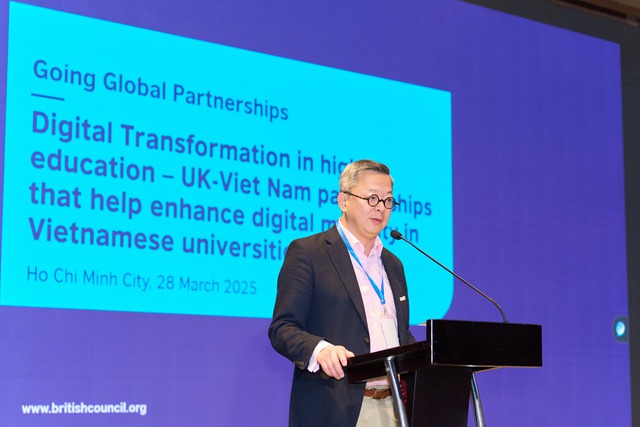
Professor Raymond Lee, Deputy Dean of the Faculty of Technology at the University of Portsmouth (UK) and co-chair of the UK-Vietnam University Education Network, shares about new pedagogical methods in the digital age.
PHOTO: BC
So that learning does not only take place in school
On the morning of March 28, within the framework of the UK Technology Week in Southeast Asia organized by the British Government, Professor Raymond Lee, Deputy Dean of the Faculty of Technology at the University of Portsmouth (UK) and Co-Chair of the UK-Vietnam University Education Network, shared about the project related to micro mobile learning. This is a project implemented by scholars from the University of Portsmouth, Shanghai Jiao Tong University (China), and Hanoi University of Science and Technology.
According to Professor Lee, the recent Covid-19 pandemic has accelerated the digital transformation process, especially when schools have to teach online. However, there is an undeniable reality that many teachers only upload learning materials online, making the expert "unsure whether there is a learning process taking place between the teaching staff and students". That is also the motivation for him to find a new pedagogical method: micro-learning on the phone.
"Our attention span is very short, and the current habit of many people is to fast-forward everything to find what they want, never watching a video longer than 15 minutes, let alone lectures that last an hour. That is also the reason why we research and design lectures in a super short direction, lasting a maximum of 5 minutes, with lots of interactive activities to ensure students are truly involved in the learning process," Professor Lee analyzed.
Why are lectures being delivered on mobile phones? According to the expert, it is because most of the students who participated in the survey said they do not usually use computers but instead use mobile phones. Therefore, teaching compatible with this device helps students learn anytime, anywhere. "It is important to let learning in the digital age take place not only in the classroom but also outside the classroom," Professor Lee emphasized.
Speaking to Thanh Nien on the sidelines of the event, Professor Raymond Lee said his team is conducting research to evaluate whether the micro-learning method on mobile phones is really effective. In addition, to test students' knowledge after finishing the course, the 5-minute lectures also integrate multiple-choice questions that require learners to answer. If the wrong answer is chosen, the system will immediately notify and explain why.
Currently, Professor Lee's research group on mobile micro-learning has launched a website of the same name with many 5-minute lectures on science and technology, especially artificial intelligence (AI). "We have to accept AI in teaching and learning in this era, and what should be done is to teach students AI literacy to use AI effectively, ethically and responsibly," Professor Lee shared.
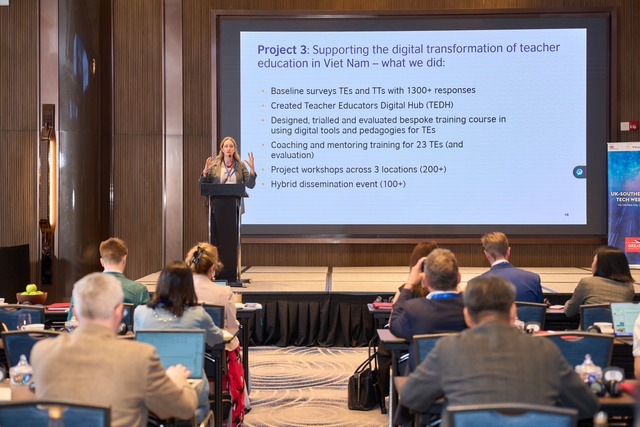
Dr. Jane O'Connor, Associate Professor of Health, Education and Life Sciences, Centre for Research on Practice and Culture in Education at Birmingham City University (UK), presented the results of one of three digital transformation projects in education between the UK and Vietnam.
PHOTO: BC
Recommendations to promote digital transformation
Sharing at the event, Dr. Jane O'Connor, Associate Professor of Health, Education and Life Sciences, Centre for Research on Practice and Culture in Education at Birmingham City University (UK), recognized that digital transformation has the potential to change everything in education, from making education more equitable, making lectures more engaging for learners, to helping teachers everywhere connect with each other and with teaching resources globally.
To promote digital transformation in Vietnamese education, Dr. Jane O'Connor recommends that at the government level, a national training program on digital competencies can be developed and certification or micro-certification can be provided to lecturers and academic staff at universities, motivating this group to develop professionally. In addition, school leaders should also promote a culture of digital transformation and have a recognition and reward mechanism.
Also at the educational unit level, each teacher and lecturer "must have the courage to start using digital pedagogical tools and methods," the expert said. "The most important thing is collaboration because this is not a competition or a race but a journey where all parties work together towards the goal of successful digital transformation," the female doctor shared.
The event also marked the completion of three digital transformation cooperation projects between universities in Vietnam and the UK. These are the joint venture project on digital transformation and development of digital technology networks for universities in Vietnam; the project to support the digital transformation process in teacher training in Vietnam; and the successful digital transformation project in Vietnamese universities. These are projects that have been implemented since 2022.
Speaking to Thanh Nien , Ms. Hoang Van Anh, Director of Education Programs at the British Council, said that the above projects are all funded by the Global Partnership Program (GPP) with a total budget of 257,263 pounds (8.5 billion VND). This is a program of the British Council, implemented from 2021 and plays a bridging role for university education in the two countries, supporting strategic goals, helping Vietnamese schools rise in global rankings...
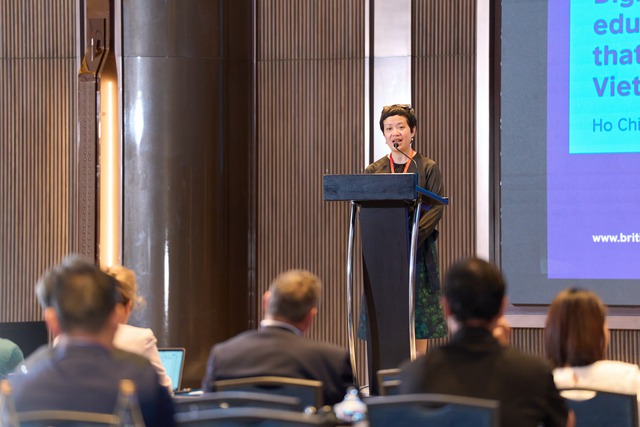
Ms. Hoang Van Anh, Director of Education Program at the British Council
PHOTO: BC
"Throughout our activities, we also promote diversity, equity and inclusion (DEI) practices in education. That is why we not only focus on Vietnam's education centers in Hanoi and Ho Chi Minh City but also expand to different regions," Ms. Van Anh shared. "In the future, we will continue to coordinate and help the Vietnamese government achieve its goals for science and technology development... such as building training programs, organizing research groups and cooperating with the Vietnamese scholar network in the UK."
Ms. Alex Smith, British Consul General in Ho Chi Minh City, added that the UK has been working with the Vietnamese Ministry of Education and Training and Vietnamese universities on the journey of digital transformation in higher education since Covid-19. According to Ms. Smith, Vietnam is the fastest growing digital economy in Southeast Asia, and "the UK is committed to continuing to support Vietnam's education sector through the wave of information and shaping the future generations of Vietnam."
Source: https://thanhnien.vn/cong-nghe-phat-trien-gio-chi-day-hoc-moi-bai-5-phut-duoc-khong-185250328212334328.htm


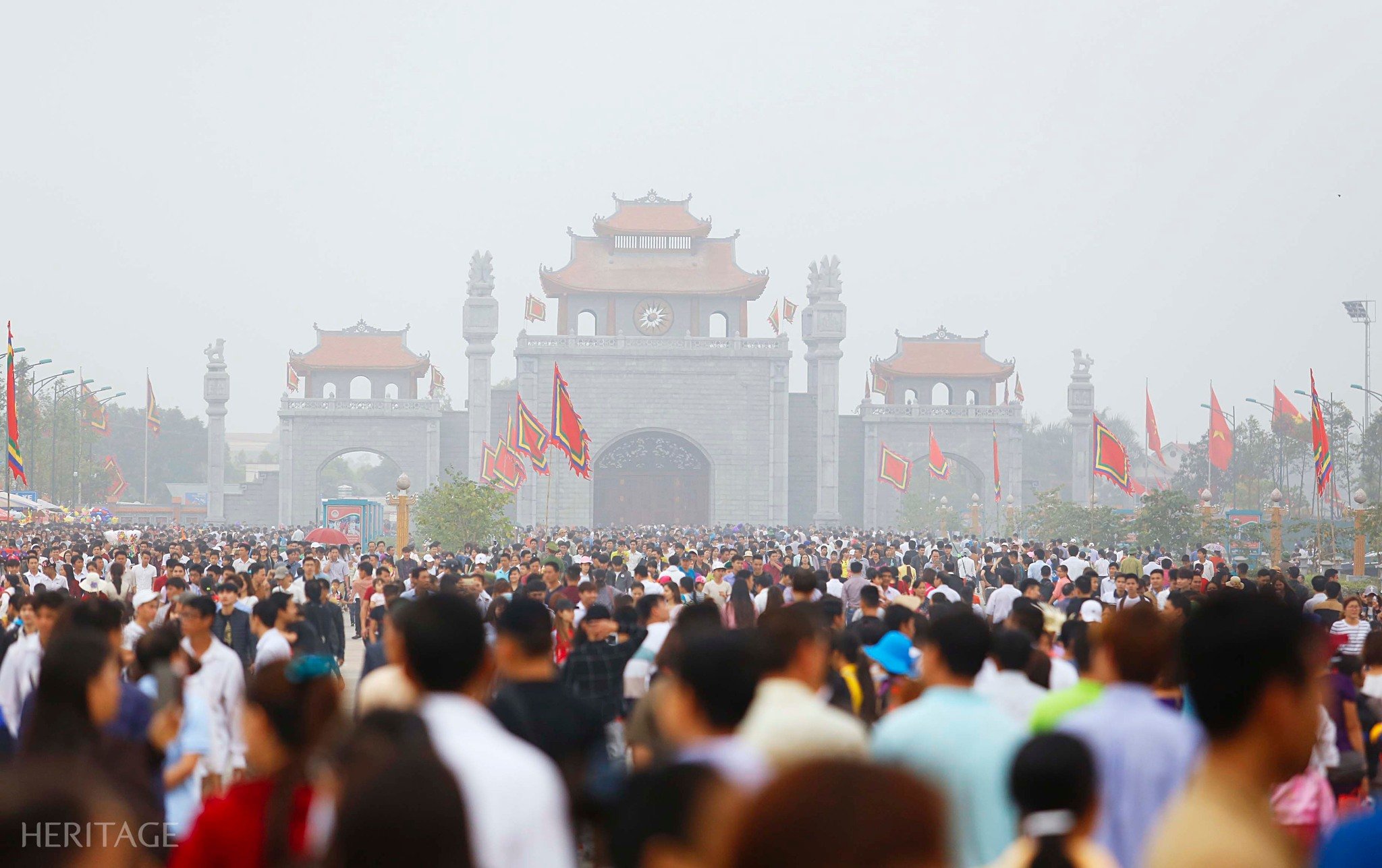

![[Photo] Special relics at the Vietnam Military History Museum associated with the heroic April 30th](https://vstatic.vietnam.vn/vietnam/resource/IMAGE/2025/4/3/a49d65b17b804e398de42bc2caba8368)
![[Photo] Comrade Khamtay Siphandone - a leader who contributed to fostering Vietnam-Laos relations](https://vstatic.vietnam.vn/vietnam/resource/IMAGE/2025/4/3/3d83ed2d26e2426fabd41862661dfff2)

![[Photo] Moment of love: Myanmar people are moved to thank Vietnamese soldiers](https://vstatic.vietnam.vn/vietnam/resource/IMAGE/2025/4/3/9b2e07196eb14aa5aacb1bc9e067ae6f)
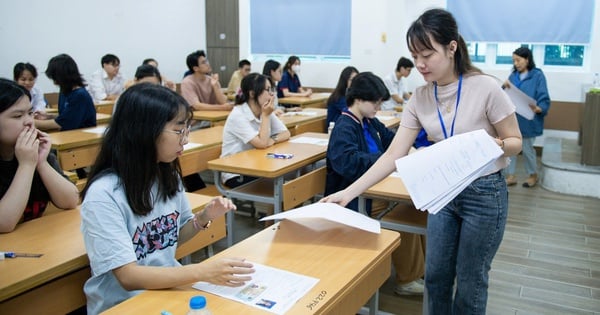

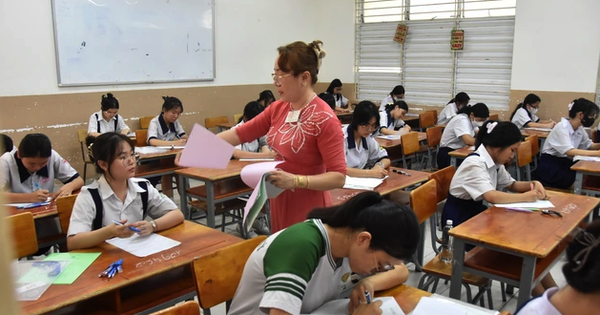
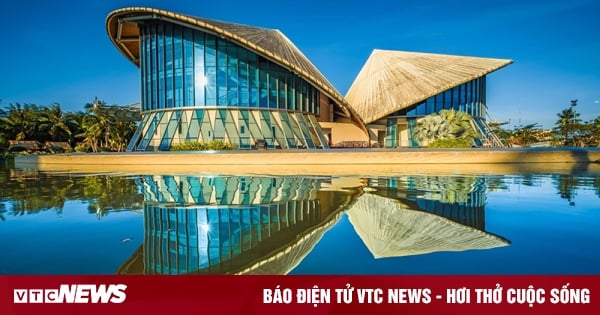
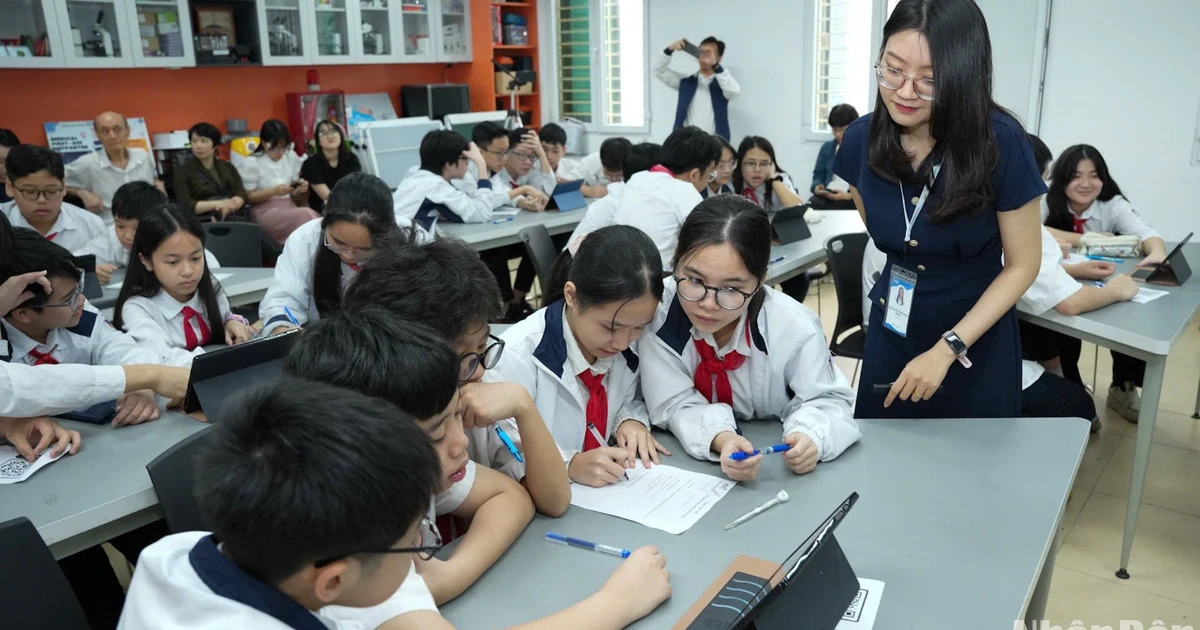
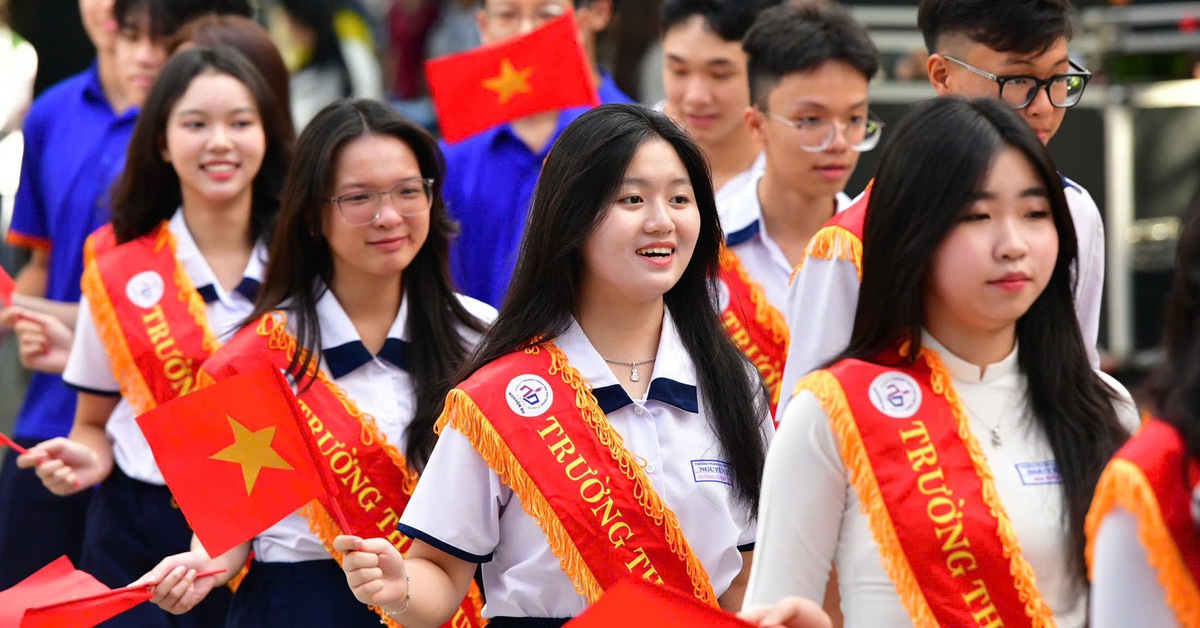










































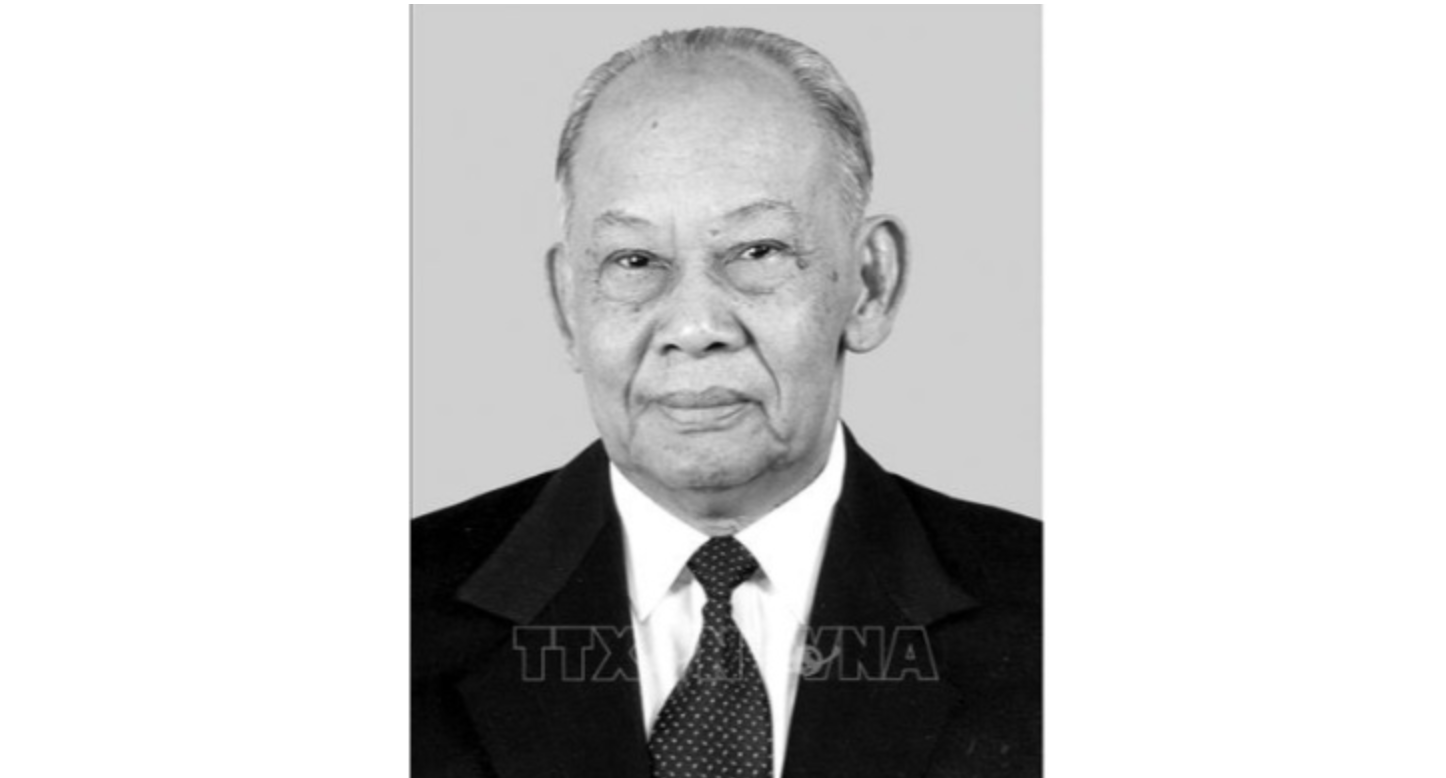


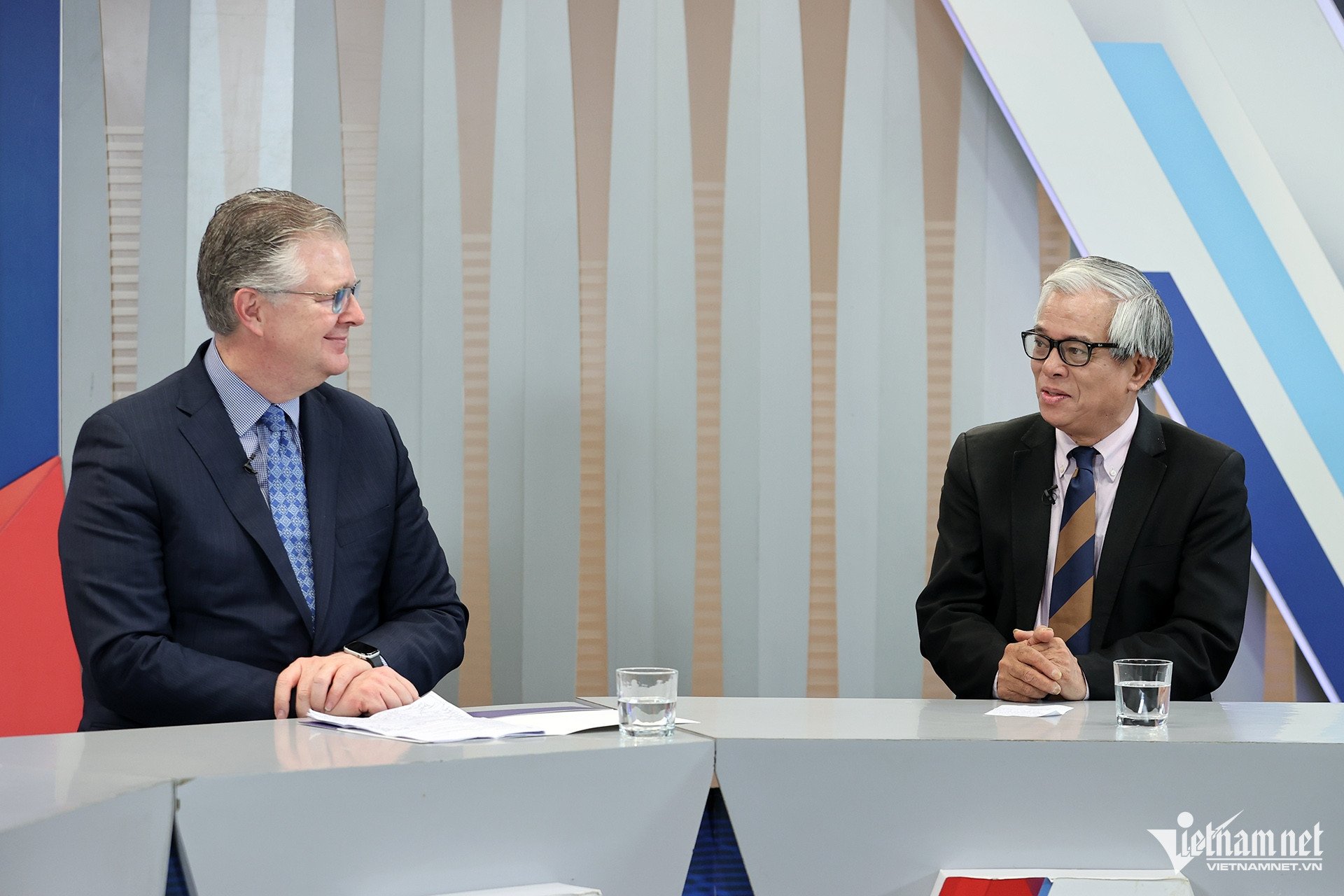
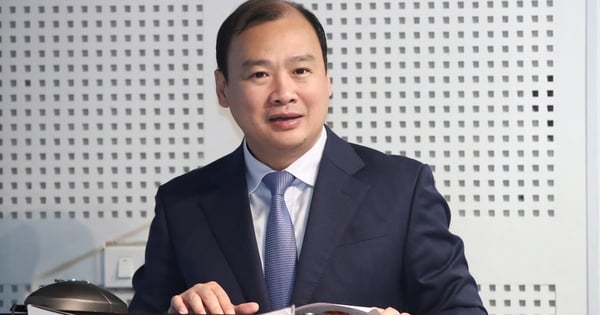



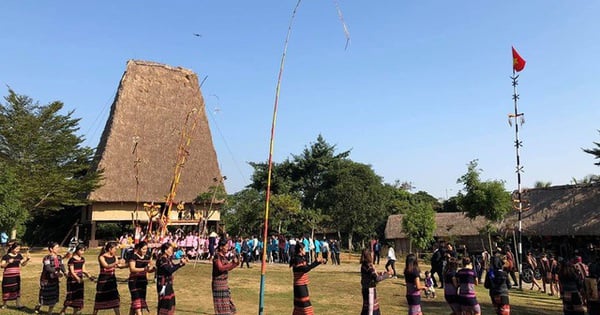

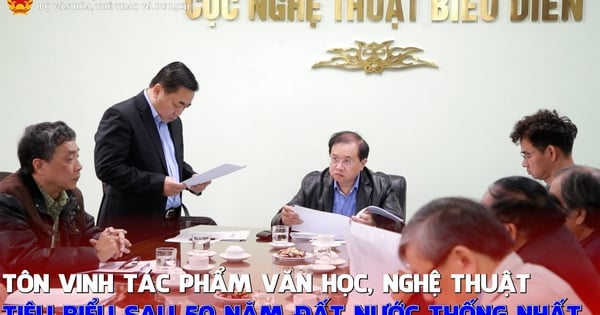
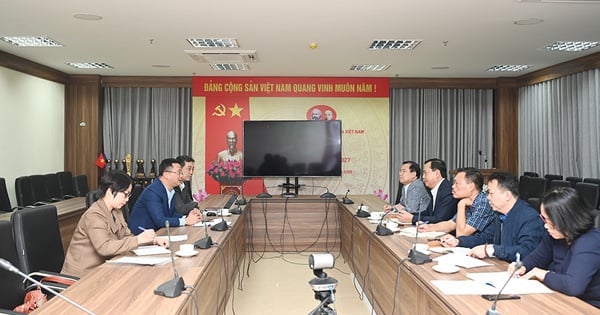
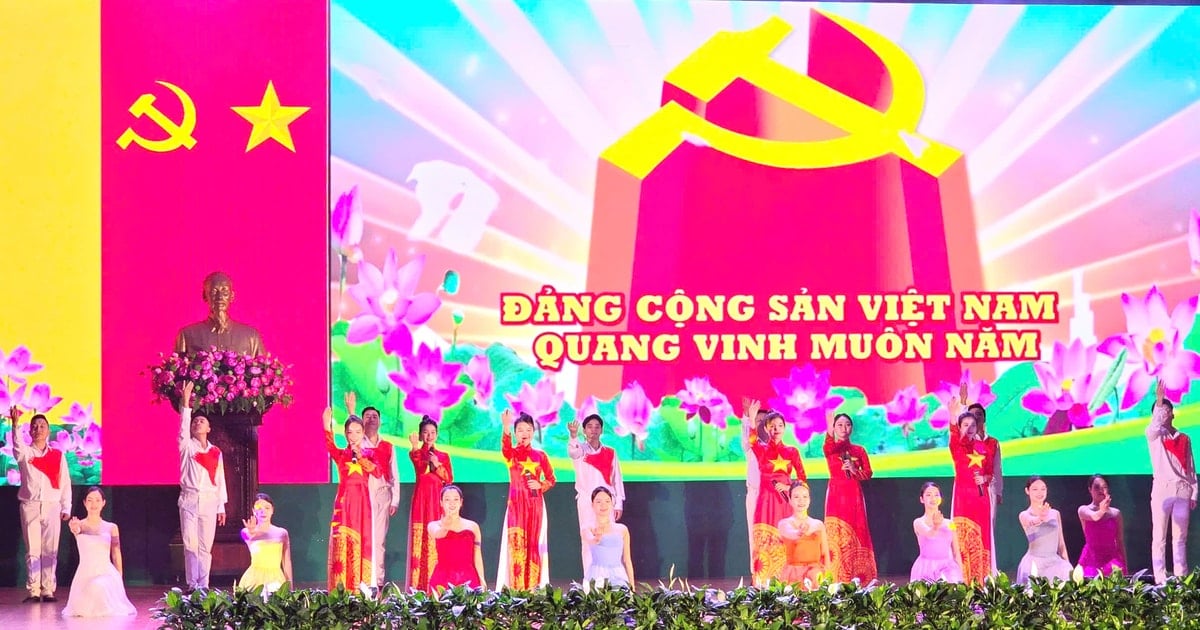


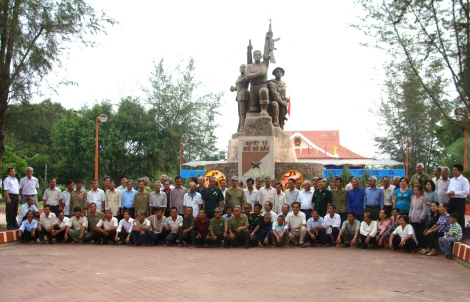

![[Podcast] News on March 24, 2025](https://vstatic.vietnam.vn/vietnam/resource/IMAGE/2025/4/3/f5fa1c3a9ae14d4590ac6965d233586b)
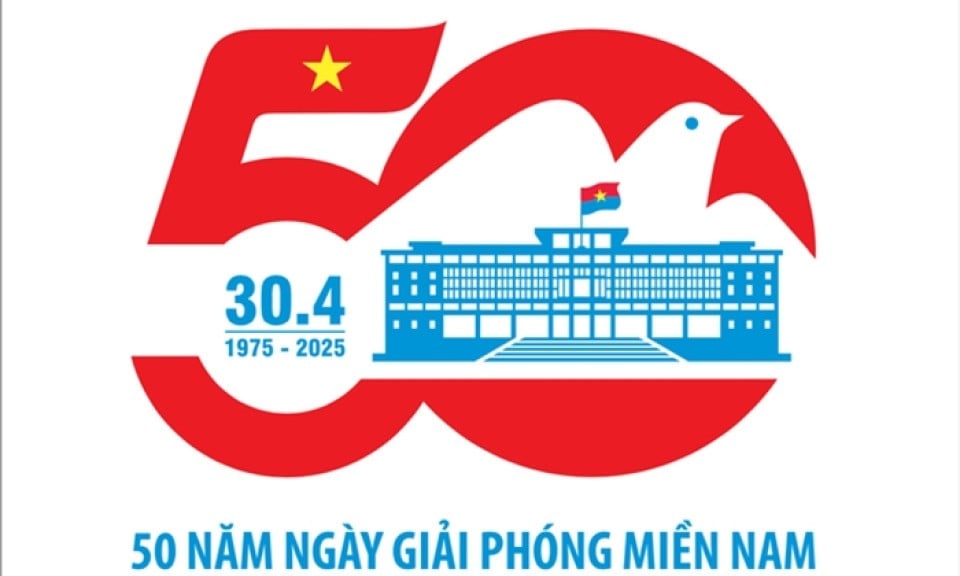













Comment (0)